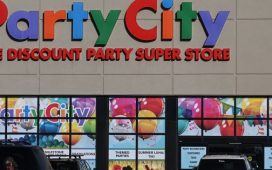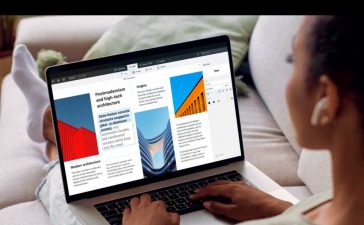
Image of the week: Paris in the summer
The hottest day of the Olympic Games has likely come and gone already, but that shouldn’t let anyone forget the extent to which climate change threatens to disrupt the entire tradition of holding sporting events in the summer months across much of the northern hemisphere – a fact that cannot be mitigated in the short term by branding such events “green”.
The “heat dome” causing scorching temperatures across western Europe and North Africa earlier this week would not have been possible without human-caused global heating, an analysis by the World Weather Attribution group has found.
The soaring temperatures had Olympic spectators in Paris joining long queues for water refills and people in the city sheltering from the heat in the cool, dark shadow of the Seine’s bridges. For Olympic athletes, conditions were difficult, especially on Tuesday, with ice packs only able to help so much. Canadian tennis player Leylah Fernandez cited “crazy heat” after her defeat, while Britain’s Jack Draper complained that organisers were not supplying cool water on court, as would be the norm.
In the Olympic Village, meanwhile, organisers skimped on air conditioning in the athletes’ rooms in the name of sustainability, saying the accommodation would be “self-cooling”. Team USA, sceptical of this idea, brought their own mobile air-conditioning units, while other national delegations, naturally conscious of the need to maximise the performance of their teams, wound up reserving units at their own expense.
In numbers: McDecline
1
Percentage decline in same-store sales at McDonald’s in the second quarter of 2024. This was its first worldwide drop in sales since the pandemic forced it to close thousands of branches.
12
Percentage drop in its net income for the period, according to its earnings update, with McDonald’s blaming the subdued performance on a fall in US customers, weaker demand in China and the “continued impact of the war in the Middle East”.
$5
Cost of a promotional meal deal launched in its US stores in late June. The company said it had sold better than expected and now planned to extend it beyond August, in the hope to lure back cash-strapped customers.
Getting to know: Robert ‘Kelly’ Ortberg
The best of luck to Robert “Kelly” Ortberg, the aerospace industry veteran who has been given the difficult task of turning around Boeing following the exit of chief executive Dave Calhoun. “Turning around” Boeing, of course, means transforming it into a company that avoids terrifying mid-air cabin panel blowouts 100 per cent of the time.
Ortberg (64), who previously led the aerospace supplier Rockwell Collins, says Boeing “has a tremendous and rich history”, that he is “extremely honoured and humbled to join this iconic company” and he is “looking forward to getting started” on August 8th. Doubtless, he will still feel just as enthused after Ryanair gets in touch.
The list: Azure casualties
Another week, another outage affecting Microsoft customers. This time it was a distributed denial-of-service (DDoS) attack on the Microsoft Azure cloud computing platform that was “amplified” by a Microsoft error as it implemented its defences against such an attack. Which organisations were affected?
1. Starbucks: Mobile ordering at the coffee chain was out of action for several hours because of the outage.
2. NatWest: British banking giant NatWest apologised to customers after some online banking services were caught up in the outage.
3. UK courts: The British courts and tribunals service said it was “aware of users experiencing issues accessing multiple online services” thanks to the Azure problem.
4. Football clubs: Top-flight Dutch football team FC Twente and Oxford United football club in England were among those to suffer issues with their ticketing services.
5. Microsoft 365 apps: Productivity applications including Outlook, Teams and Excel were down for some Azure users. So the outage wasn’t all bad then.












